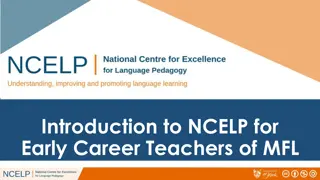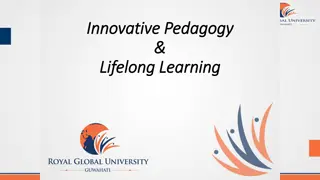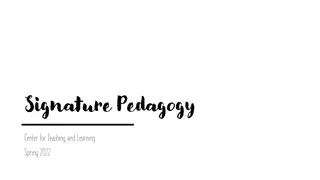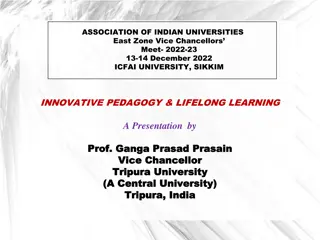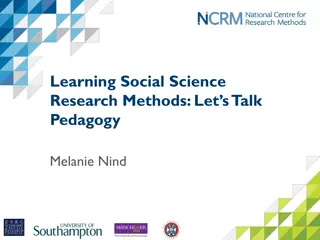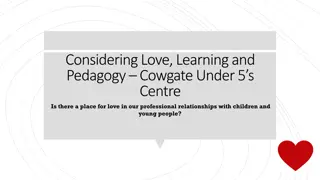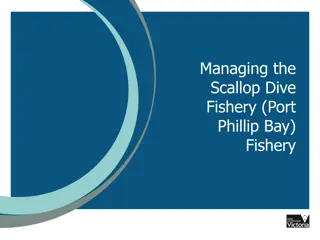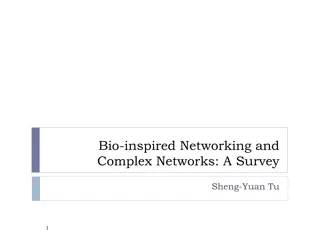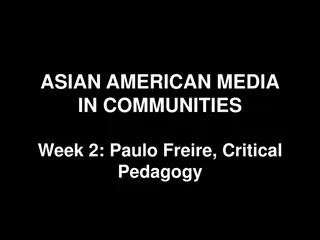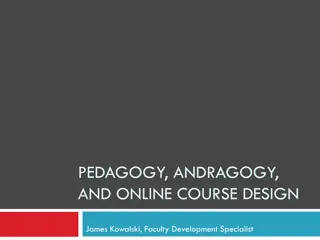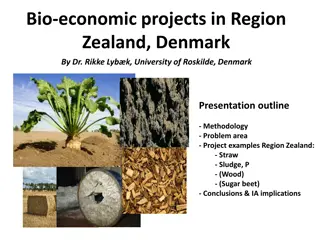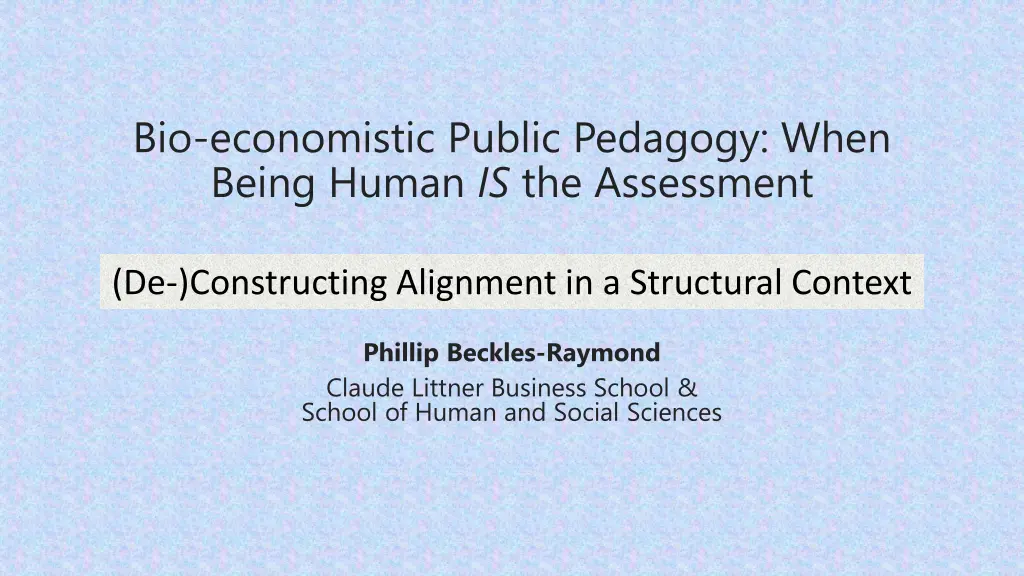
Unveiling the Impact of Economics and Social Structures on Pedagogy
Explore the intersection of economics and social structures in pedagogy, rethinking traditional assessment methods. Learn how societal influences shape learning outcomes and the teacher-learner dynamic. Discover the hidden implications of historical practices like African Chattel Enslavement in modern education systems.
Download Presentation

Please find below an Image/Link to download the presentation.
The content on the website is provided AS IS for your information and personal use only. It may not be sold, licensed, or shared on other websites without obtaining consent from the author. If you encounter any issues during the download, it is possible that the publisher has removed the file from their server.
You are allowed to download the files provided on this website for personal or commercial use, subject to the condition that they are used lawfully. All files are the property of their respective owners.
The content on the website is provided AS IS for your information and personal use only. It may not be sold, licensed, or shared on other websites without obtaining consent from the author.
E N D
Presentation Transcript
Bio-economistic Public Pedagogy: When Being Human IS the Assessment (De-)Constructing Alignment in a Structural Context Phillip Beckles-Raymond Claude Littner Business School & School of Human and Social Sciences
Assumptions and context Economics carries meaning in at least three practical contexts: (1) cultural practice, (2) academic/ disciplinary practice, (3) professional/ management practice These three domains correspond to structural, institutional and interpersonal domains of human and social relations, i.e. power None of these contexts or domains are mutually exclusive, creating potential for conflation of what we mean by economic. Economics is more than a discipline 2
Constructive Alignment Constructive Alignment (John Biggs, et al): Knowledge constructed through activities of the learner Teaching and learning/assessment aligned to intended learning outcomes Embedded in a supportive culture, at departmental, faculty, institutional and national levels. What about cultures beyond the national level? Who gets to know? What is knowable? How do we come to know? Learning is constituted by social structures and vice versa 3 Biggs, J. (2014). Constructive alignment in university teaching. HERDSA Review of Higher Education
Reimagining Alignment Social Epistemology (Mills 2015) re-contextualises and re-conceptualises the teacher/learner relationship beyond the individual. Social structures exist as agents of Public Pedagogy (Giroux 2004) and vice versa, de-neutralising the ethics of assessment Moving towards de-constructive alignment as a starter means repurposing assessment to question the answer and evaluate the response In a structural context, society becomes teacher- learner, lecturer and student are symbolic Giroux, H. A. (2004). Public Pedagogy and the Politics of Neo-Liberalism: Making the Political More Pedagogical. Policy Futures in Education, 2(3 4), 494 503. 4 Mills, C. W. (2015). Global white ignorance. In M. Gross & L. McGoey (Eds.), Routledge international handbook of ignorance studies (pp. 217 227). Routledge.
Case study Assessing African Chattel Enslavement ACE helped to structure Western society and Modern economics at national, institutional, disciplinary and interpersonal levels.** Crucially, ACE rendered what it means to be human in Western Society as biologically and economically overdetermined Modern economics as cultural, disciplinary and professional practice conceals, silences, denies and erases ACE structuring. Universities have always played a major role here. CA within Modern economics leaves social structuring like ACE out of scope **As bio-economism (Wynter 2003, Polanyi 1977), contracts of domination (Mills & Pateman 2007), imperialist, white supremacist, capitalist, patriarchy (hooks 1994), Rational Manliness (Beckles-Raymond 2021). 5
Pursuing De-Constructive Alignment Make the assessment metacognitive structural reflexivity interwoven with institutional and interpersonal reflexivity Reverse the role of answers and questions - Pursuing critical consciousness through dialogue (Freire 1970) Reimagine learning as an embarkation from existential crisis as lecturer, journeying with students Assessing learning in a structural context means critically and reflexively interrogating society s ILOs (social cognition/epistemologies) and Teaching/Learning Activities (public pedagogies) 6 Freire, Paulo, Pedagogy of the Oppressed. New York, Continuum, 2000.
Examples of Assessments Debate/group interview: Weekly reflections/Class participation: Textual analysis/annotated bibliography: Does ending Gender Pay Inequality Require a Transformation of the Economic Purpose of Business in Society? Discuss what can Carnival tell us about what it means to either: be human, liv good or achieve liberatory ends in the context of intersectional domination? Reflect on the importance of imagination, courage, integrity and cooperation for exploring alternative paths other than Development by which societies can conceptualise and realise the highest possible expressions of humanity that are accessible to all humans and without causing harm to anyone. De-constructive alignment assesses learning in the structural context of an ethical framework concerned with intersectional justice 7
Outcomes and Feedback Compliance - Is this economics? Are you serious? That stuff didn't really happen did it? How does this prepare me for my career? Performance tends to reflect compliance more than engagement. Feedback is split along similar lines dissatisfaction relating to the promise; fulfilment relating to the pedagogy. Student development tends to be implicitly qualitative (though outwardly expressed) rather than explicitly measured What does de-constructive alignment imply for institutional parameters like satisfaction, employability and sustainability? Are existing KPIs part of the problem or the solution? Engagement - Can all my classes be like this? Can t we just do things the regular way? This is the best class I've ever taken. I don t see the point. Critical consciousness - Why hasn't anyone told me this before? where do we go from here? Why should I even bother? Why is the world the way it is? Where can I find books on this stuff? 8



